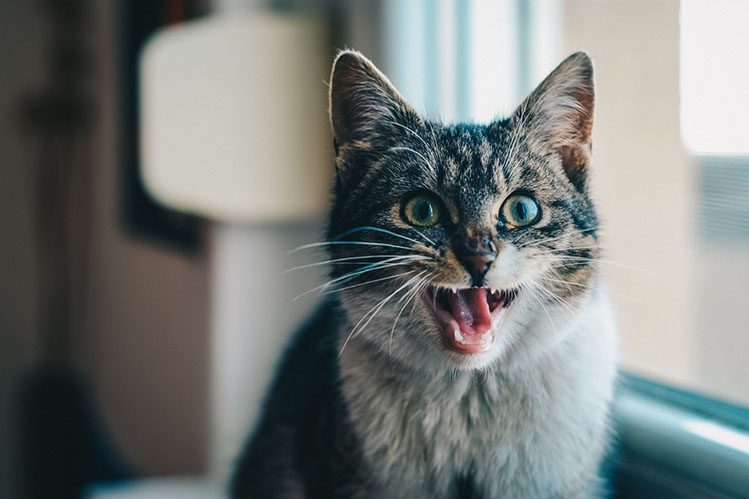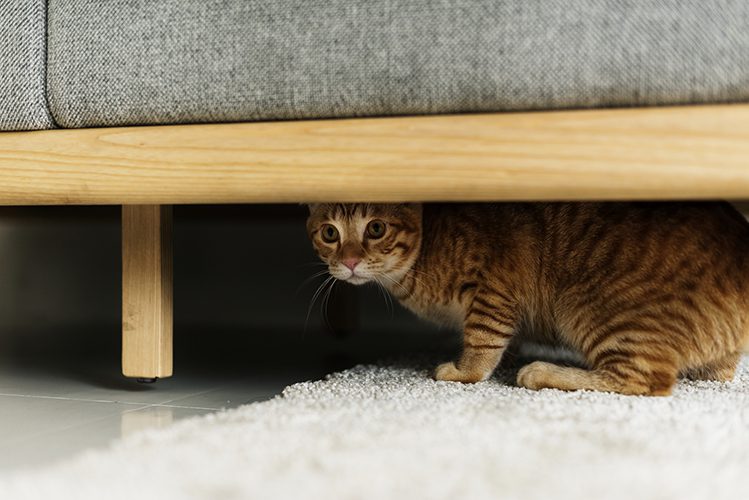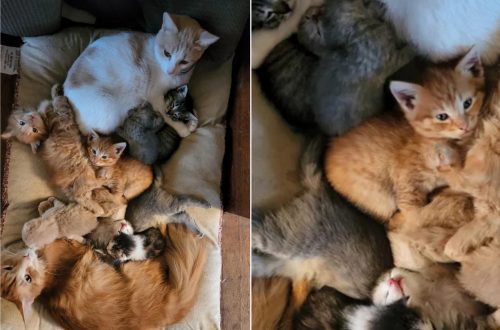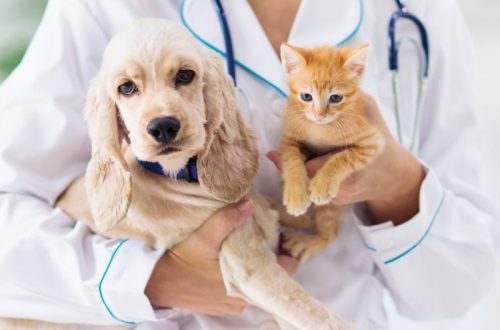
Stress in a cat: recognize and help
Cats are unique animals that, like humans, are subject to stressors. A stressed cat may scratch furniture and wallpaper, meow frequently, scream at night, mark territory, and behave aggressively. In addition to behavioral problems, stress has a negative impact on health, weakening the immune system and exacerbating chronic diseases. We will tell you how to recognize that your cat is stressed and help your pet get out of this state.
A healthy adult cat eats with appetite, willingly plays with the owner, does not show aggression towards people, sleeps at least 14 hours a day. Her coat is smooth and silky. The cat is curious about the world around. She is a conservative by nature, does not like sudden changes in life and annoying factors. How do you know if a cat is stressed? Pay attention to the following signs:
if a cat is frightened or alerted by something right now, she arches her back, hisses and presses her ears to her head. This is the most obvious signal of a stressful situation;
change in eating behavior: either pounces on food and requires supplementation, or eats poorly, refuses food;
the cat sleeps less and worse on the background of anxiety;
the cat constantly washes and licks the hair with such enthusiasm that it can lead to self-injury of the skin and mechanical alopecia;
The pet is itchy. Check if everything is in order with the cat’s skin. It is possible that we are talking about dermatological problems or parasites. But if the skin is clean, and your ward is constantly itching, this indicates stress;
avoids communication with the owner, seeks to retire. If the cat hides from you in the first days after the move, this is normal. But if you constantly notice such behavior in your pet, there is reason to be wary;
change in behavior. If a once affectionate cat began to show aggression, this is an indicator of stress. Another option is also possible – a cat that has always preferred solitude constantly requires attention and affection;
- going to the toilet in the wrong place. If a disciplined cat seems to forget where her tray is, this indicates anxiety and anxiety of the pet.

Stress in a cat is the tension of the pet’s nervous system, the body’s response to external irritation. Stress factors can be divided into physical (injuries, pain), biological (viral diseases, lack of food, etc.), chemical (reaction to smoke, household chemicals), psychological (strangers in the house, howling sirens, thunderstorms). The most common causes of stress are:
changing of the living place;
transportation, travel, long road;
trip to the veterinary clinic;
the arrival of new family members in the house;
jealousy against the background of the appearance of other pets in the house;
pain, injury.
Long-term stay in a stressful state can affect not only the behavior, but also the work of the internal organs of the pet. It is important to recognize and eliminate stress in time, otherwise permanent nervous tension can result in illness.
In an acute stressful state, the cat’s pulse quickens, breathing becomes fast and shallow, and blood pressure rises. Against the background of prolonged experiences, the work of the cardiovascular system changes, digestive processes are disturbed, and immunity protection decreases. The stress factor must be neutralized in a timely manner, otherwise it can significantly affect all processes in the body.
How to help a cat? The first thing to do is to identify the cause of stress and, if possible, eliminate it. If the irritating factor disappears, the cat will quickly recover.
Surely you have guesses about what could become a stressor. Perhaps it’s the new washing powder with an obsessive odor. Under repair? Permutation? Or maybe the neighbor in the stairwell has got a dog that barks the whole house? If possible, remove the possible causes of stress in the cat one at a time. So you can understand what exactly caused hostility in your ward.
If it is impossible to eliminate the cause of stress, start with the simplest – with kind tactile contact. Stroke the pet, scratch behind the ear, let your ward feel how much you value her. Be sure to talk to your cat gently. By voice and intonation, she will understand that you are praising her, comforting her.
Distract the cat from annoying factors with a game, switch her attention – this is another recipe for how to relieve stress in a cat. Keep your cat occupied with a fun and interesting toy. This way you will let the cat know that the noise from the repair behind the wall is nonsense and you can have fun playing.
Additional physical activity will also help the cat get out of a stressful state. Please your pet with a new play complex with a scratching post, a labyrinth, a house. Let the cat turn its attention to this attraction.
Consult a veterinary nutritionist for the appropriate food for stressed cats. The inclusion of fatty acids in the diet helps to stimulate the nervous system.
If your efforts do not help to stir the pet, you need to see a doctor. It is possible that the true cause of stress lies not in moving, but in poor health.
Great stress relievers are catnip toys or toys to fill with treats (e.g. small Kong snowmen), anti-stress pastes (GimCat), treats, natural sedative sprays (Natures Miracle). All this is your home “Ambulance”, a way to quickly distract a worried pet and bring her to her senses.

In the case of severe and prolonged stress, the toy and treat will be powerless. The correct tactic in this case is to examine the cat from a veterinarian and enlist the support of an experienced zoopsychologist. He will help you understand the true motives of the pet’s behavior and tell you how to behave specifically with your cat in order to reduce her anxiety.
Cats with a difficult fate are especially susceptible to stress, which had a negative experience of communicating with a person in the past and survived in difficult conditions. Such pets may have psychological trauma. They can react much sharper and more painfully to stimuli than their counterparts.
Be prepared that your cat may need medical treatment. There is nothing to worry about: in our time, there are many safe sedatives for especially sensitive animals. Some of these you can use in advance of an anticipated stressful situation to prepare your cat’s nervous system and help her cope. In no case do not purchase medicines without a doctor’s recommendation, because. the wrong drug will only exacerbate the problem.
The reaction of a pet to certain events is largely due to what experience he received at an early stage in life. If you are used to traveling everywhere with your owner, then a short trip will not seem like a stressful situation to a four-legged friend.
Study the nature of the pet. If your cat is by nature thoughtful and likes solitude, make it so that she does not run into relatives who have come to you for the weekend or guests who have come to your birthday. Let the cat in the back room have its own cozy corner where no one will disturb it.
Planning to move? Upon arrival at a new place, immediately get a cat bed, a tray, a blanket, and favorite old toys for the cat. That way she’ll get used to it. If your teenage cat is about to spend the summer in the country, in advance, start briefly turning on audio recordings of thunderstorm sounds – first quietly, then a little louder. Let the first summer thunderstorm not be a complete surprise for your pet.
If you have any doubts that your pet will handle a long trip or other similar challenge, check with your veterinarian in advance about a suitable sedative for your cat.
Remember that during force majeure, non-standard events, not only we are subject to stress, but also our pets. Pay special attention to your wards in difficult moments, and pets will respond to you with a playful mood and excellent health.





